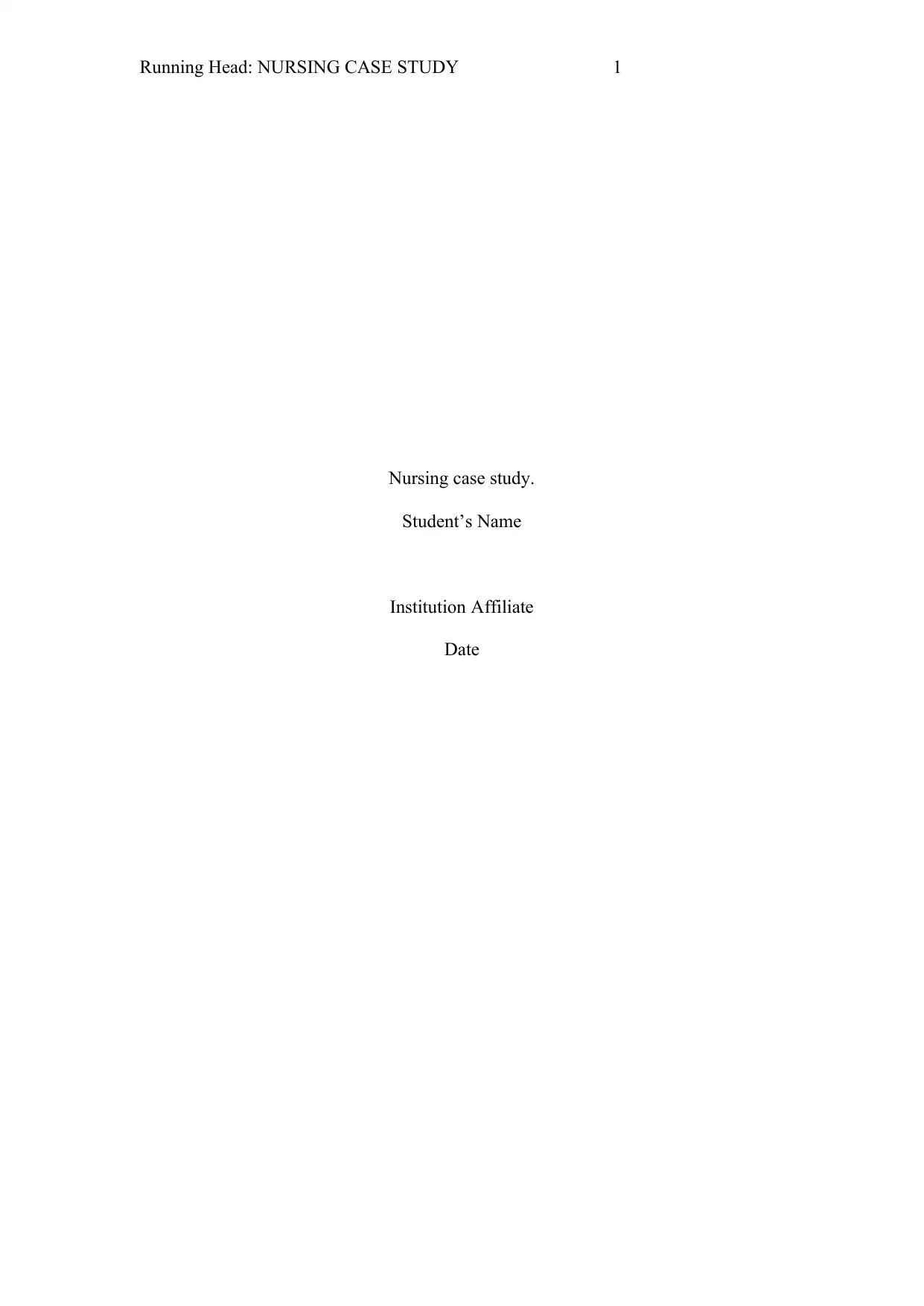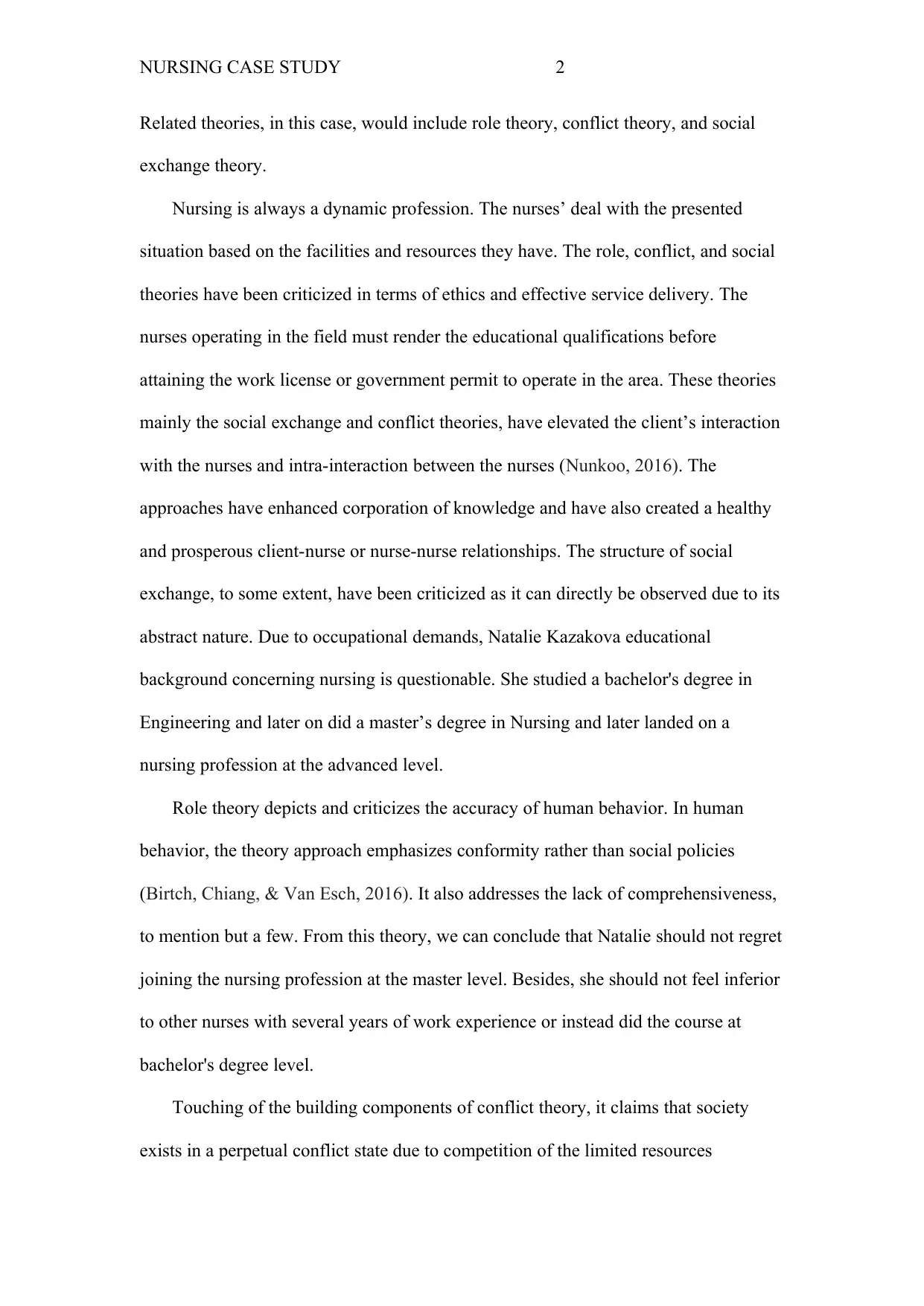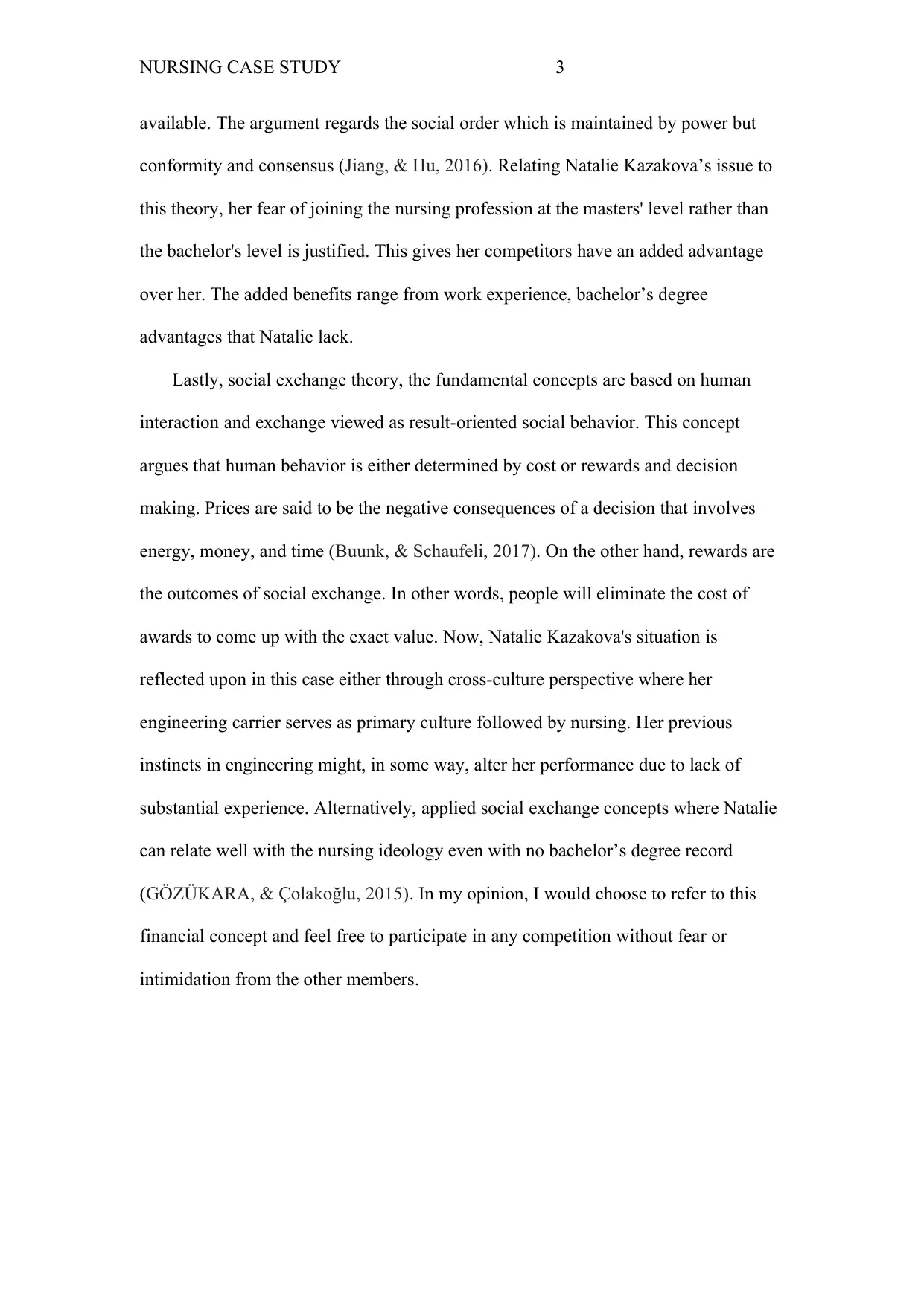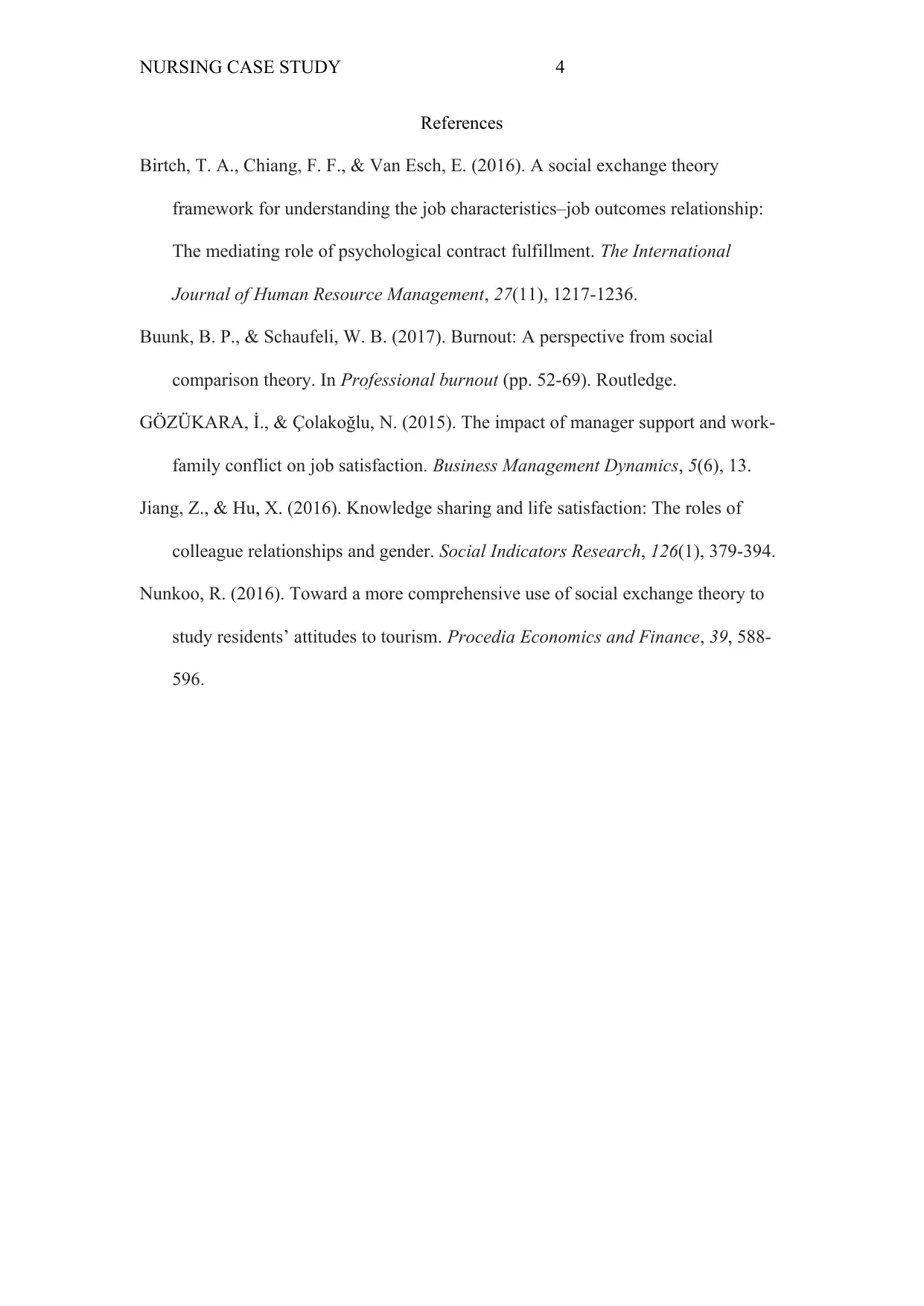Nursing Case Study: Applying Theories to Nursing Practice
VerifiedAdded on 2022/10/04
|4
|848
|19
Case Study
AI Summary
This case study analyzes the challenges faced by Natalie Kazakova, a nurse with a master's degree in nursing and a background in engineering, who is experiencing insecurity in her new profession. The assignment explores the application of role theory, conflict theory, and social exchange theory to understand Natalie's situation and the dynamics within her workplace. The analysis includes a comparison of the case study to relevant nursing theories, providing examples from the student's nursing experience where these theories might be applied. The study references the educational qualifications and professional experiences of nurses and their impact on client-nurse and nurse-nurse interactions. The paper also considers the limitations of these theories in the context of nursing practice. The case study concludes with a discussion of how Natalie's background in engineering might influence her performance and how social exchange concepts can be applied to her situation.
1 out of 4







![[object Object]](/_next/static/media/star-bottom.7253800d.svg)